
下载亿题库APP
联系电话:400-660-1360

下载亿题库APP
联系电话:400-660-1360

请谨慎保管和记忆你的密码,以免泄露和丢失

请谨慎保管和记忆你的密码,以免泄露和丢失

报考2020年ACCA考试的小伙伴们,大家都有在认真备考吗?为了帮助大家更好的备考,下面帮考网就给大家分享一个ACCA考试《公司法与商法》的试题,备考的小伙伴赶紧来练练吧。
Question:
In relation to the law of contract,explain the rules relating to:
(a)acceptance of an offer;
(b)revocation of an offer.
Answer:
This question requires an explanation of the rules relating to the acceptance and revocation of offers in contract law.
(a)Acceptance is necessary for the formation of a contract. Once the offeree has accepted the terms offered, a contract comes into effect. Both parties are bound: the offeror can no longer withdraw their offer, nor can the offeree withdraw their acceptance. The rules relating to acceptance are:
(i)Acceptance must correspond with the terms of the offer. Thus, the offeree must not seek to introduce new contractual terms into their acceptance (Neale v Merrett (1930)).
(ii)A counter-offer does not constitute acceptance (Hyde v Wrench (1840)). Analogously, a conditional acceptance cannot create a contractual relationship (Winn v Bull (1877)).
(iii)Acceptance may be in the form of express words, either oral or written. Alternatively, acceptance may be implied from conduct (Brogden v Metropolitan Railway Co (1877)).
(iv)Generally, acceptance must be communicated to the offeror. Consequently, silence cannot amount to acceptance (Felthouse v Bindley (1863)).
(v)Communication of acceptance is not necessary, however, where the offeror has waived the right to receivecommunication. Thus in unilateral contracts, such as Carlill v Carbolic Smoke Ball Co (1893), acceptance occurredwhen the offeree performed the required act. Thus, in the Carlill case, Mrs Carlill did not have to inform the Smoke Ball Co that she had used their treatment.
(vi)Where acceptance is communicated through the postal service, then it is complete as soon as the letter, properly addressed and stamped, is posted. The contract is concluded even if the letter subsequently fails to reach the offeror(Adams v Lindsell (1818)). However, the postal rule will only apply where it is in the contemplation of the parties that the post will be used as the means of acceptance. If the parties have negotiated either face to face, in a shop, for example, or over the telephone, then it might not be reasonable for the offeree to use the post as a means ofcommunicating their acceptance and they would not gain the benefit of the postal rule.
The postal rule applies equally to telegrams (Byrne v Van Tienhoven (1880)). It does not apply, however, when means of instantaneous communication are used (Entores v Miles Far East Corp (1955)).
In order to expressly exclude the operation of the postal rule, the offeror can insist that acceptance is only to be effective on receipt (Holwell Securities v Hughes(1974)). The offeror can also require that acceptance be communicated in a particular manner. Where the offeror does not insist that acceptance can only be made in the stated manner, then acceptance is effective if it is communicated in a way no less advantageous to the offeror (Yates Building Co v J Pulleyn& Sons (1975)).
(b)Revocation is the technical term for the cancellation of an offer and occurs when the offeror withdraws their offer. The rules relating to revocation are:
(i)An offer may be revoked at any time before acceptance. However, once revocation has occurred, it is no longer open to the offeree to accept the original offer (Routledge v Grant (1828)).
(ii)Revocation is not effective until it is actually received by the offeree. This means that the offeror must make sure that the offeree is made aware of the withdrawal of the offer, otherwise it might still be open to the offeree to accept the offer(Byrne v Tienhoven (1880)).
(iii)Communication of revocation may be made through a reliable third party. Where the offeree finds out about thewithdrawal of the offer from a reliable third party, the revocation is effective and the offeree can no longer seek to accept the original offer (Dickinson v Dodds (1876)).
(iv)A promise to keep an offer open is only binding where there is a separate contract to that effect. Such an agreement is known as an option contract, and it must be supported by separate consideration for the promise to keep the offer open.
(v)In relation to unilateral contracts, i.e. a contract where one party promises something in return for some action on the part of another party, revocation is not permissible once the offeree has started performing the task requested (Errington v Errington & Woods (1952)).
以上是本次帮考网分享给大家的ACCA考试试题,备考的小伙伴抓紧时间练习一下吧。欲了解更多关于ACCA考试的试题,敬请关注帮考网!
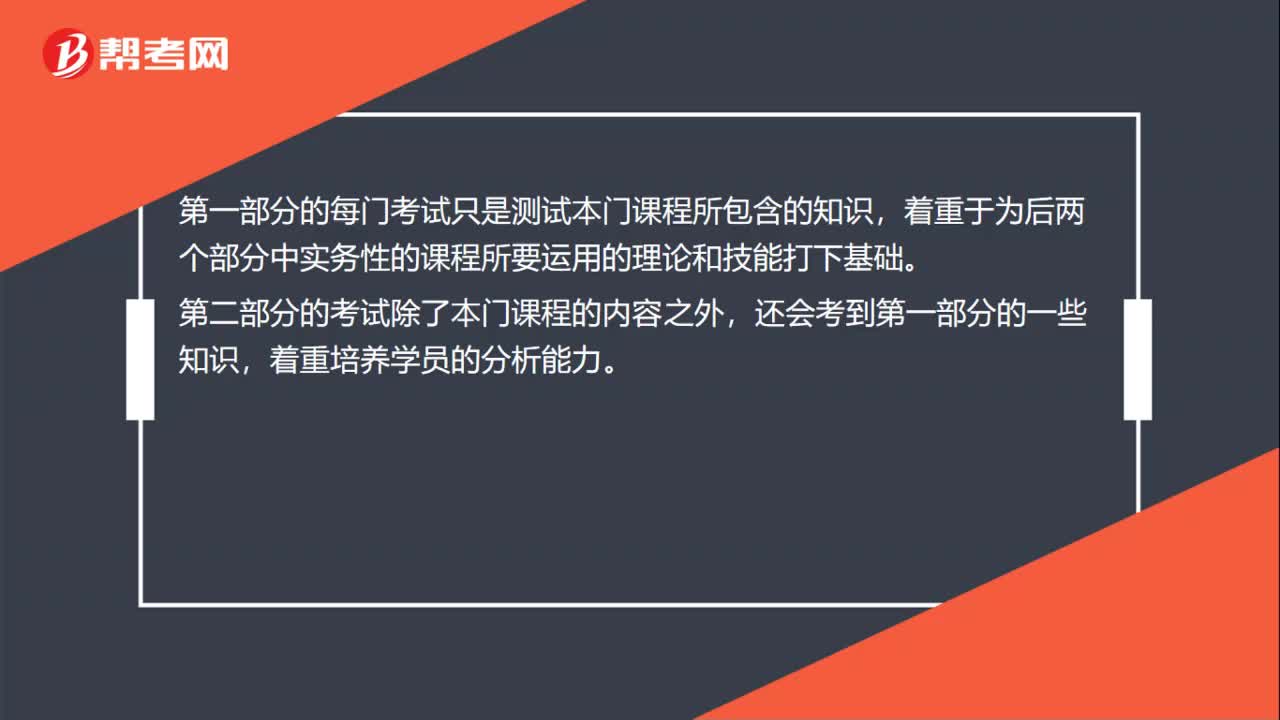 80
80ACCA考试难度大吗?:ACCA考试难度大吗?ACCA考试的难度是以英国大学学位考试的难度为标准,第一(f1-f3)、第二部分(f4-f9)的难度分别相当于学士学位高年级课程的考试难度,第三部分p阶段的考试相当于硕士学位最后阶段的考试。第一部分的每门考试只是测试本门课程所包含的知识,着重于为后两个部分中实务性的课程所要运用的理论和技能打下基础。第二部分的考试除了本门课程的内容之外。
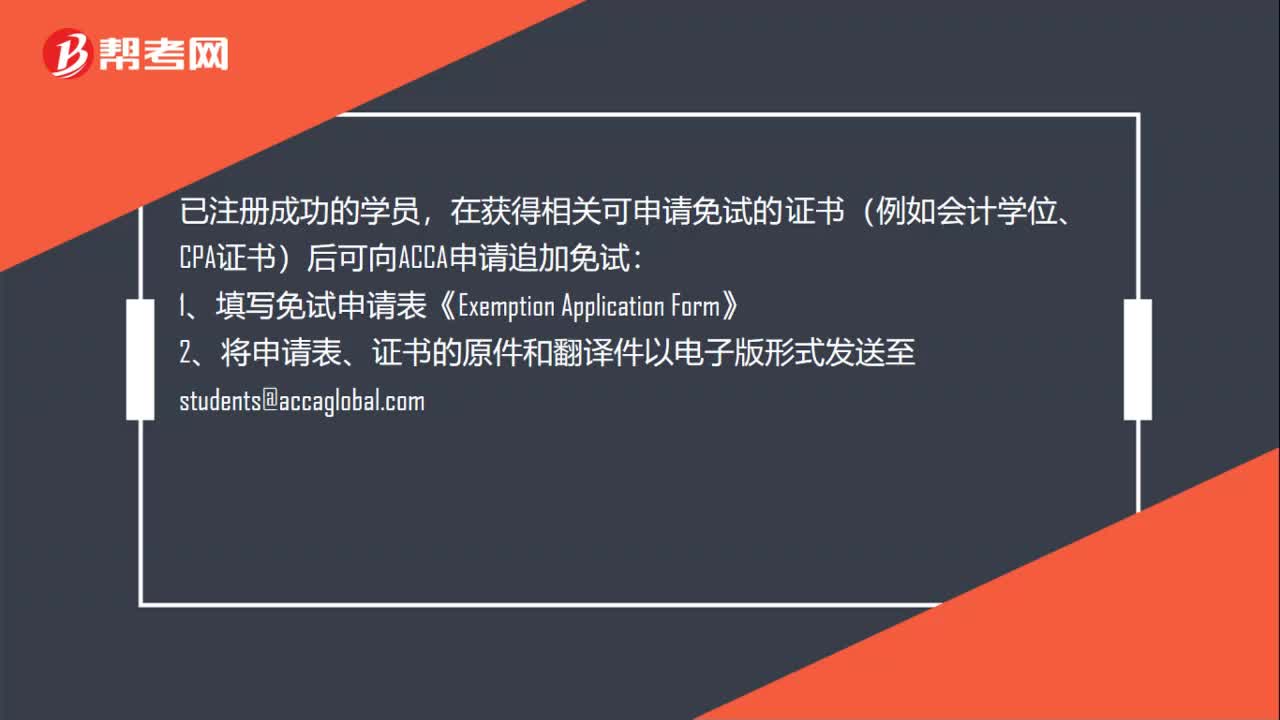 56
56ACCA考试怎么申请免考?:ACCA考试怎么申请免考?已注册成功的学员,在获得相关可申请免试的证书(例如会计学位、CPA证书)后可向ACCA申请追加免试:1、填写免试申请表《Exemption。2、将申请表、证书的原件和翻译件以电子版形式发送至students@accaglobal.com:3、请注意查收邮件或登录MYACCA学员账户查看免试信息,4、确认时间为5个月左右版;(例如,7月15日前提交申请12月考试生效
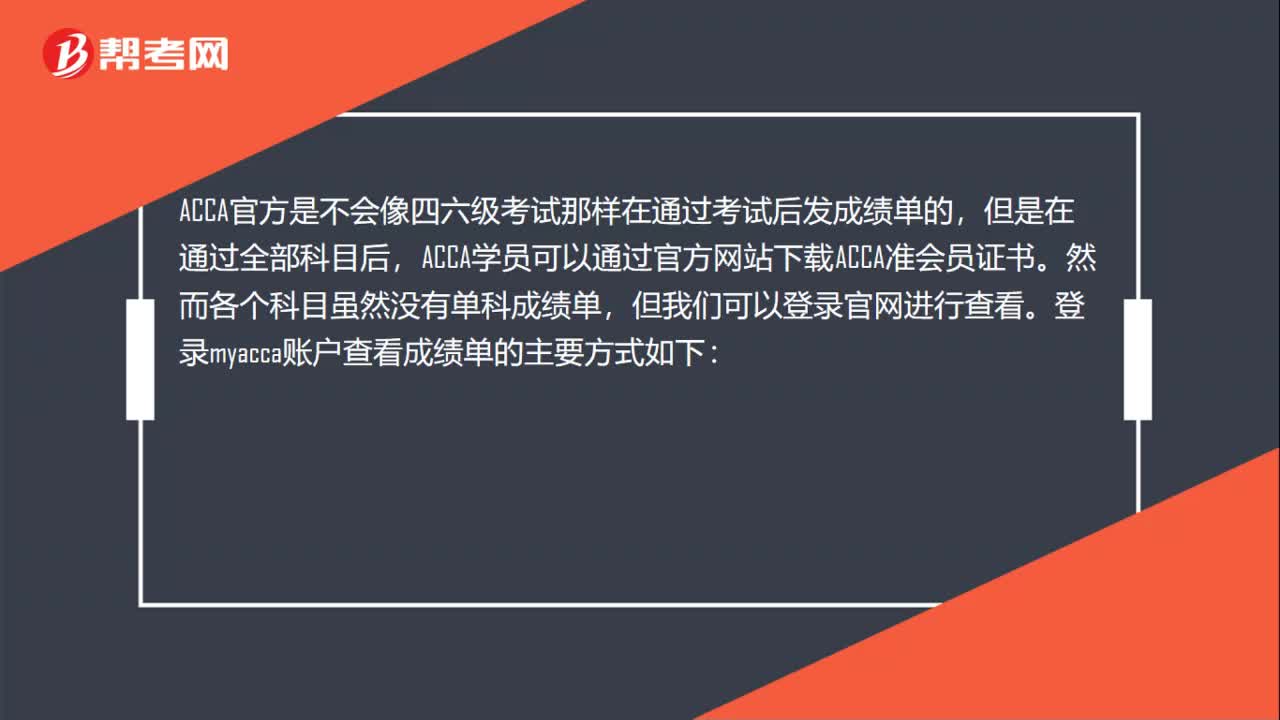 66
66ACCA考试有成绩单吗?:ACCA考试有成绩单吗?ACCA官方是不会像四六级考试那样在通过考试后发成绩单的,但是在通过全部科目后,ACCA学员可以通过官方网站下载ACCA准会员证书。然而各个科目虽然没有单科成绩单,但我们可以登录官网进行查看。登录myacca账户查看成绩单的主要方式如下:1、登陆ACCA官网accaglobal.com,进入学员个人页面;2、 输入个人的学员注册号码及密码后点击按钮“login”
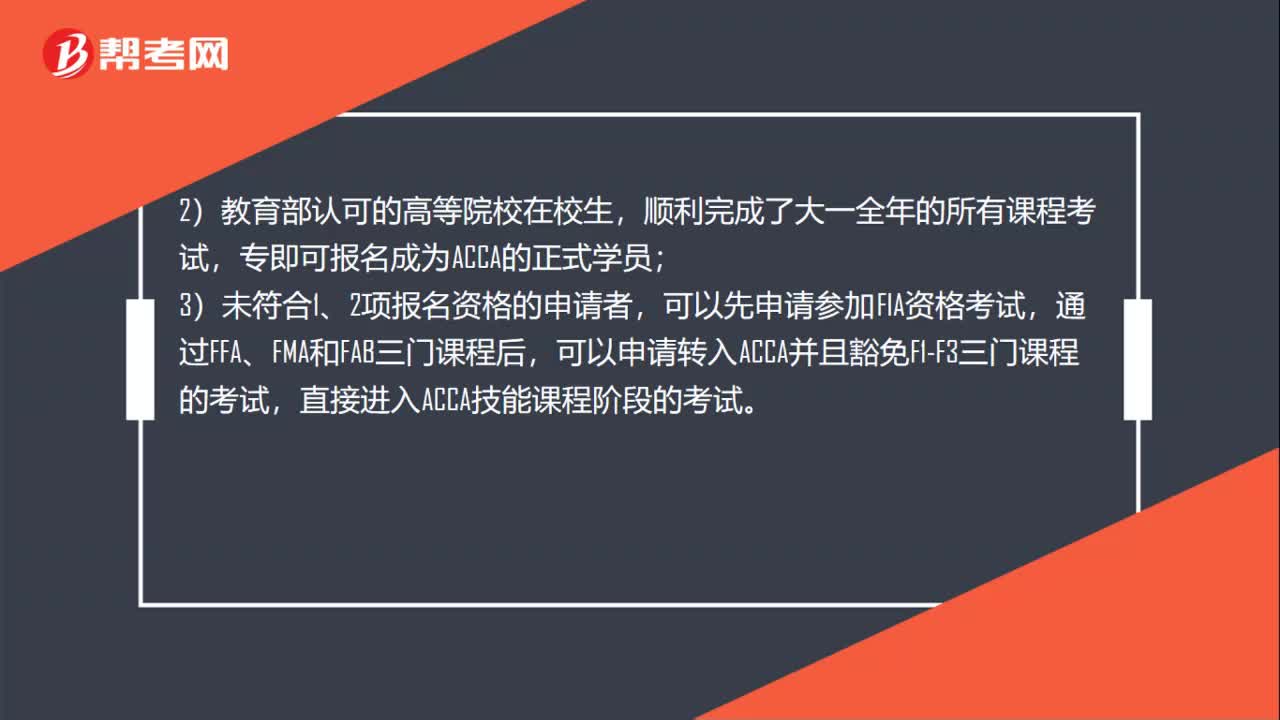 01:03
01:032020-06-04
 01:20
01:202020-06-04
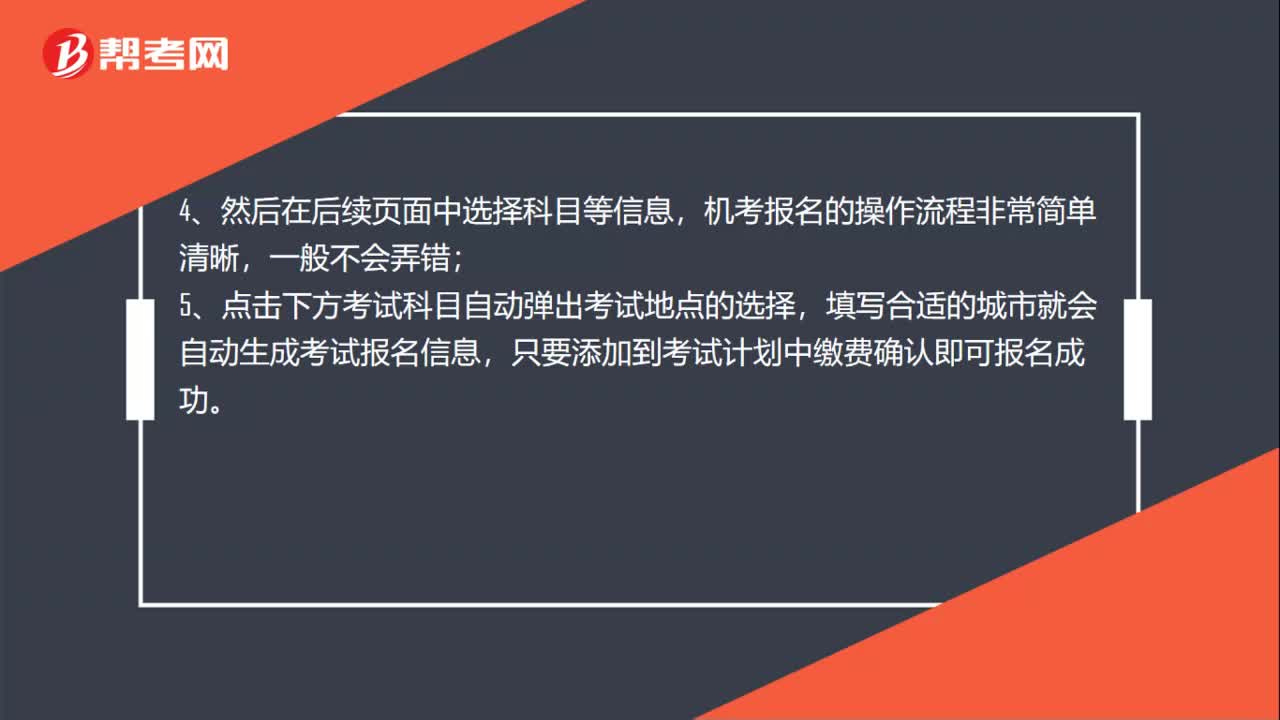 01:21
01:212020-06-04
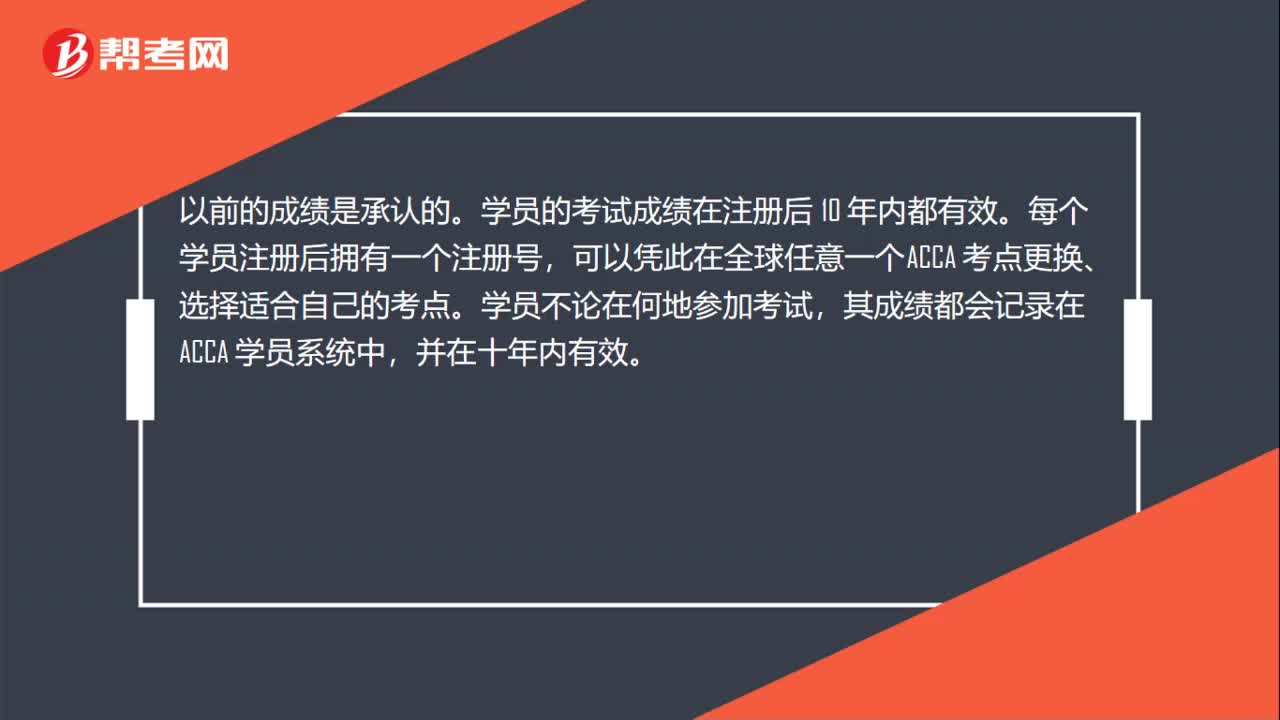 00:34
00:342020-06-04
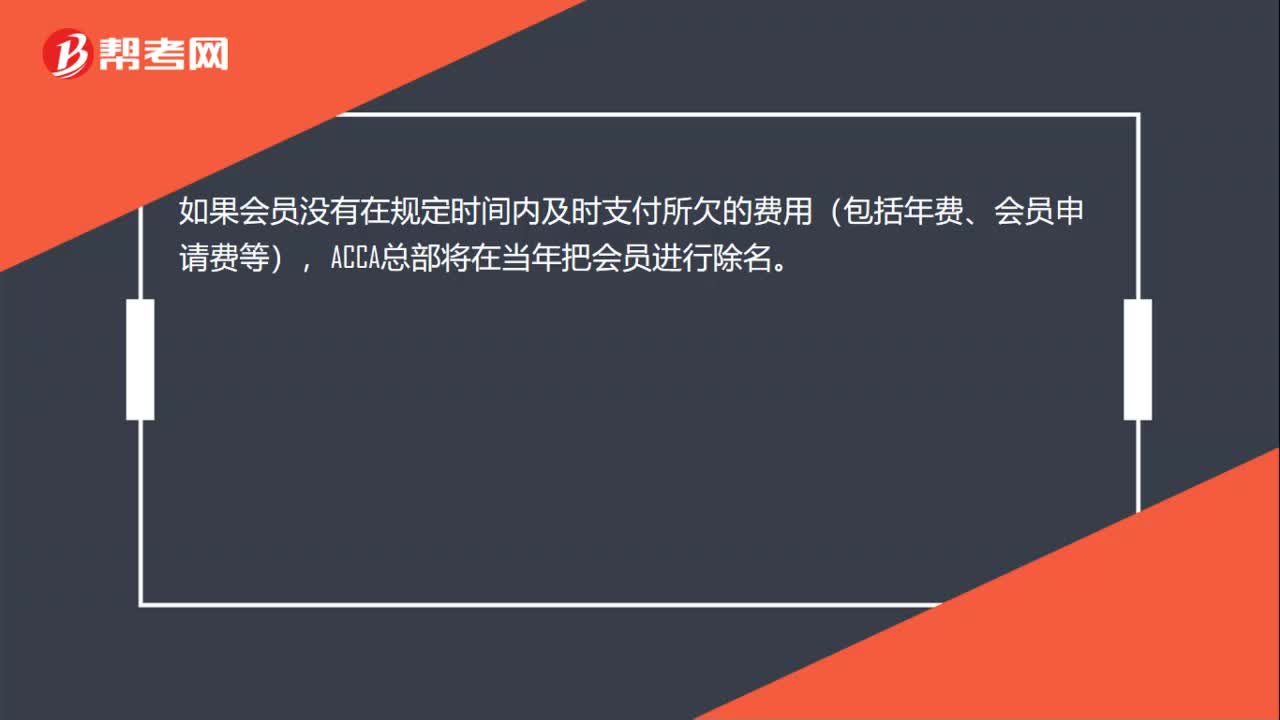 00:19
00:192020-06-04

微信扫码关注公众号
获取更多考试热门资料